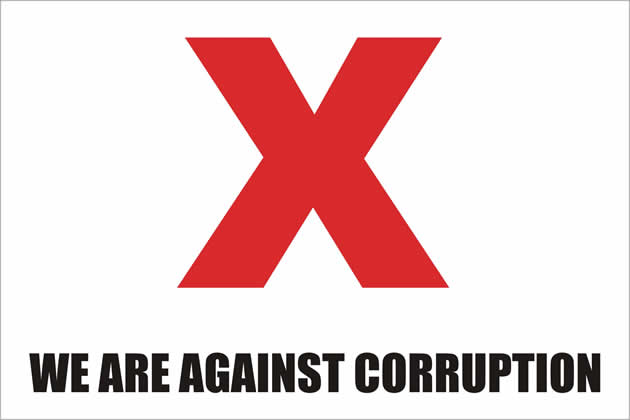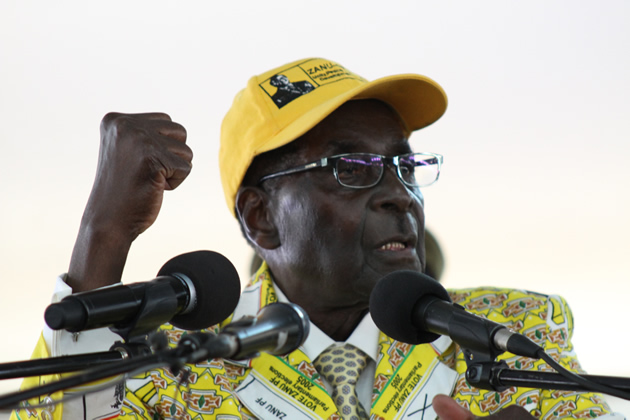EDITORIAL COMMENT: Curbing corruption everyone’s duty

 Corruption — in general use a concept including bribery, embezzlement and abuse of office for profit — makes countries poorer and creates low morale societies as people begin to feel that those with power, at whatever level, could not care and just want to reap where they have not sown.
Corruption — in general use a concept including bribery, embezzlement and abuse of office for profit — makes countries poorer and creates low morale societies as people begin to feel that those with power, at whatever level, could not care and just want to reap where they have not sown.
Almost everyone condemns it, but it can be particularly difficult to investigate and eliminate. The term covers such a wide range of activities that are criminal or, if not, are totally undesirable that there can be no single solution.
The law defines corruption as the seeking and taking of bribes, although all of us tend to use the word to mean far more. But even with this narrow definition it can be extremely difficult to find proof that someone has made a decision or done someone a favour in return for some reward, which may not even be financial.
No one stands up in public, in front of a camera when he hands over a bribe to someone else; the transaction is done secretly, without witnesses and preferably without records.
But at least taking and paying bribes are both criminal offences, capable in theory of being proved beyond reasonable doubt in a court of law. The same applies to theft although usually when someone appears to have looted the company or department or State enterprise we find that there was no crime; someone authorised what happened, or someone is able to sidetrack or even abort an investigation. And that might be abuse of office, or it might be just sheer incompetence.
So how do we proceed? We need to compile that evidence.
For the criminal activities we have the police. But the fraud squad is hampered by a lack of resources, generally the sort of high-end accounting-qualified manpower, that is needed to investigate these sorts of underhand activities. But we have, over the years, found that full audits, either by the Auditor-General or by a private audit firm, can uncover criminal acts, or at least acts that are suspected to be criminal, and can pinpoint the questions that police detectives need to ask specific people and need to use their powers to secure evidence to prove.
We would like to suggest more use of this double approach, auditors being sent in to find the accounting facts and then detectives, armed with this information, moving in to investigate individuals. It is a laborious process, but in the end will either find no crime has been committed or will assemble enough evidence to that a particular person or people can be safely convicted in a court.
But this approach will require adequate resources so both the Auditor-General and the Commissioner-General can hire the required qualified people.
Far more difficult to deal with is the vast grey area of abuse of office. Governments are made up of people and if, as we all desire, we have people who know what they are doing in Government then it is likely that many must have experience from the real world rather than just be professional politicians.
We win as a country in two ways, first having people with proven track records and experience in sorting things out and, secondly, in having people who do not need to be corrupt; if they have an irreconcilable difference of opinion with the President or their party, or if voters reject them, they can simply return to a better-rewarded private station. They do not need to steal.
But this use of people who have made their mark means that many will own businesses, or be married to people who own businesses, or have a profession. We need a way to separate those who feel an obligation to serve their country in Government from those who want to use a Government position to advance their personal businesses.
Again information is needed. So again someone needs to investigate allegations and clear the innocent while ensuring that the guilty are fired, even if they have committed no crime. This is where the Zimbabwe Anti-Corruption Commission could play a major role so long as the people appointed were suitable. Judges or retired judges might be ideal.
During the 1980s there were several instances where a judge was appointed to investigate a matter, the most famous being the Willowvale scandal where it eventually emerged that a handful of ministers had abused the privilege of jumping the queue to buy one car for personal use by effectively entering the car trade. Perhaps we could build on that experience with a more permanent body.
We have also seen in the last year or so people entrusted with running State and public bodies and being paid excessive salaries.
We solved that with audits, to uncover the facts, a change in boards, to bring in people who knew how to cope better and a change in rules to ensure that decisions regarding remuneration and contracts of employment were made by a committee rather than one person. We learned from our bad experiences.
And one of the biggest things we have learned is the need for information and the need for this information to be analysed. If we know what is going one we can quickly work out if a criminal act has been committed by a particular person, if someone has abused their office without necessarily committing a crime, or if someone is just hopeless and needs to be replaced by a more competent person.
From what we have also learned recently the good old boring auditor, doing a proper job, is often the best person to get that information.
The innocent and competent should not worry about investigations; they will be cleared of criminal activity and probably praised. And we do need to clear the innocent and praise those who are doing their job properly. But we also need to find the guilty and get rid of the abusers and the incompetent.
We are not advocating witch-hunts but we are appealing for a proper, formal set of rules applied by qualified people who can define precisely what may be happening so that the correct action can be taken.









Comments